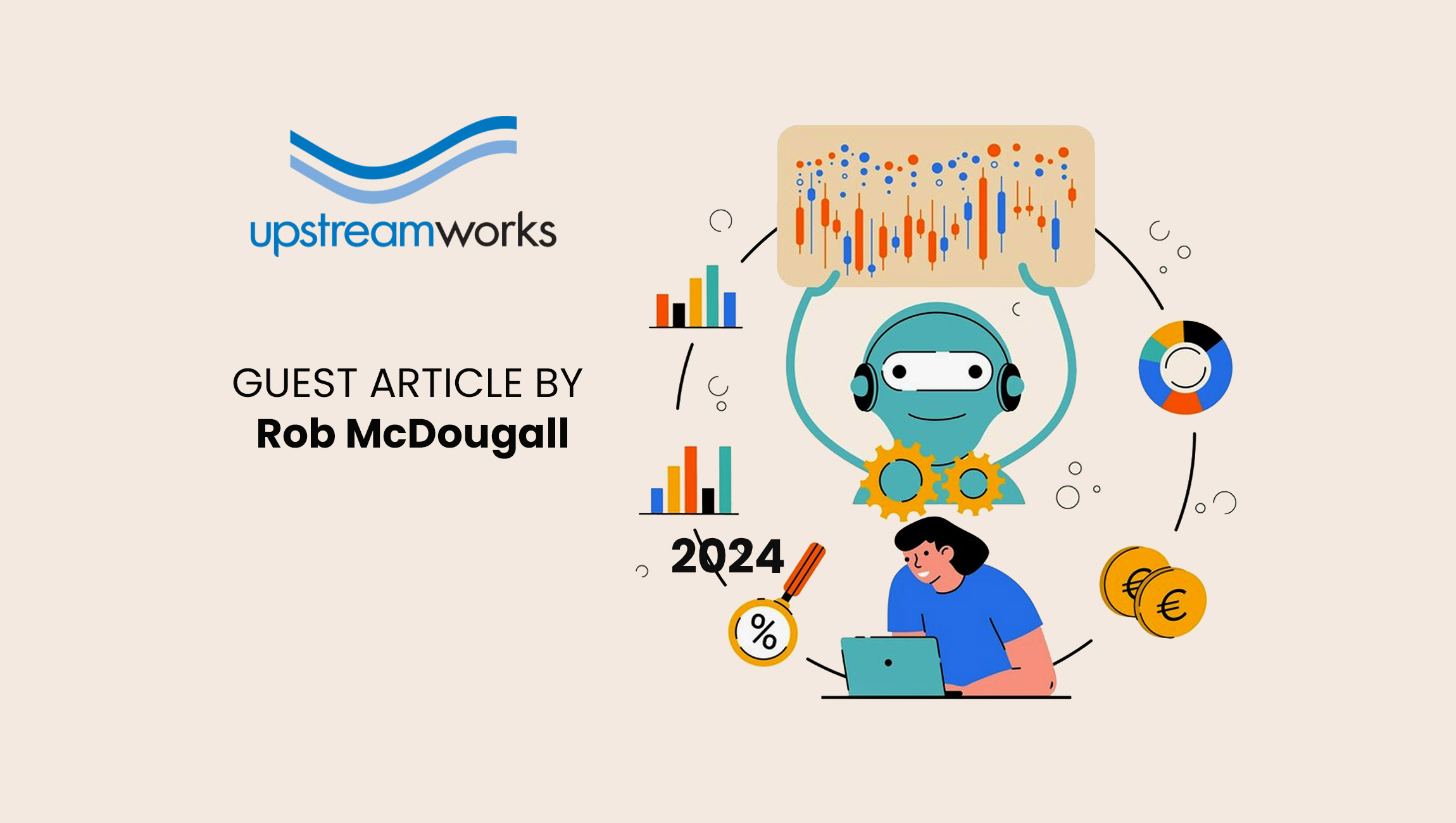AI Trends Redefining Sales and Marketing in 2024
By Rob McDougall, CEO at Upstream Work

2023 marked a significant year for the integration of Artificial Intelligence (AI) across various business functions such as customer contact centers; 2024 is already shaping up to be equally promising.
Here are three prominent trends that will help to keep moving AI to the top of the sales and marketing capabilities requirements list.
1. Rise of ‘Closed AI’ Solutions
In sales and marketing, viewing AI as a multifaceted toolkit rather than a solution for a single challenge offers a more nuanced understanding. A clear trend is emerging in the sales and marketing sector: the adoption of ‘Closed AI’ solutions.
‘Closed AI’ encompasses AI applications that are ready to use out of the box, without the need for in-depth training or complex integration, delivering instant advantages in contact center tasks such as customer conversation transcription, summarization, and sentiment analysis. In the sales and marketing domain, examples include summarization or an intent determination tool for incoming calls and chats, or auto determination of follow-up actions.
These ‘Closed AI’ applications do not rely extensively on external systems or vast datasets for training. Unlike the more adaptable ‘Open AI’ systems, which necessitate tailored integration into existing business workflows, ‘Closed AI’ solutions are primed for immediate deployment. In a context where extensive training or modifications are often required to derive modest business benefits, the move towards ‘Closed AI’ indicates a shift towards more readily available AI tools that can be quickly implemented for specific functions.
Read More: SalesTechStar Interview with Valerie Bartlett, SVP of Growth at Tracer
2. Maintaining a Human-Focused Strategy
As the year unfolds, the significance of a human-centric approach in implementing AI within the sales and marketing sectors is becoming increasingly evident. During a sequence of AI-focused workshops held in various U.S. cities in September 2022, I explored the use of AI in enhancing sales and marketing efforts, highlighting the greater risks and costs associated with fully autonomous chatbots as opposed to AI that augment human capabilities. Notably, even amidst the buzz generated by ChatGPT, there’s been a mounting call from industry leaders for a stronger emphasis on human-led interactions. Most people agree that it’s better to use those language tools to help sales and marketing teams before we just hand everything over to chatbots. This way, AI helps us out without taking over.
Initially, AI-driven chatbots might have detracted from the customer experience, leading to increased frustration. Although recent advancements in language models have enhanced their ability to grasp user intents, the complexity involved in programming these models (and adding appropriate guardrails) for autonomous action remains a hurdle. This can result in customer dissatisfaction if not adeptly managed.
If we make sure our sales and marketing people are leading the way with AI, businesses can make the most of what AI is good at, while still having humans around to fix any hiccups AI might have. So, customers enjoy a really great experience, getting the best of both – the personal touch from real people and smart assistance from AI.
3. Challenges for Specialized Chatbot Vendors
Initially recognized for their cutting-edge AI, specialized chatbot vendors are now facing a highly competitive environment. They are up against not just one, but multiple significant players with advanced Large Language Model (LLM) capabilities.
As AI and machine learning (ML) technologies become more widespread, many of these niche providers are pivoting to function as interfaces for LLMs developed by tech giants such as Amazon, Google, Microsoft, OpenAI, or Hugging Face. As AI models become more of the norm, those classic chatbot companies are hitting some tough financial challenges. It’s getting harder for them to stand out, especially when new AI tech isn’t the big wow factor it used to be in the market.
AI’s Role in MarTech is More than a Trend, it’s Changing the Game
From the rise of user-friendly ‘Closed AI’ to keeping things human at the core, and the challenges chatbot providers are facing, there’s a lot going on. But it all boils down to finding that sweet spot where AI’s cool features meet human skills without causing a fuss or losing that personal touch we all value.
But let’s not forget, it’s also about being smart about how we use AI, making sure it’s ethical, and keeping the conversation going between the technologists making it and the people using it. Moving forward, it’s going to be all about teaming up with AI to make sure we’re enhancing, not losing, the human connection that makes sales and marketing work.
Read More: Leveraging LinkedIn Ads to Build a Sales Pipeline
Also catch; Episode 184: Al and Its Influence on Marketing: with Adri Gil Miner, CMO of Iterable



